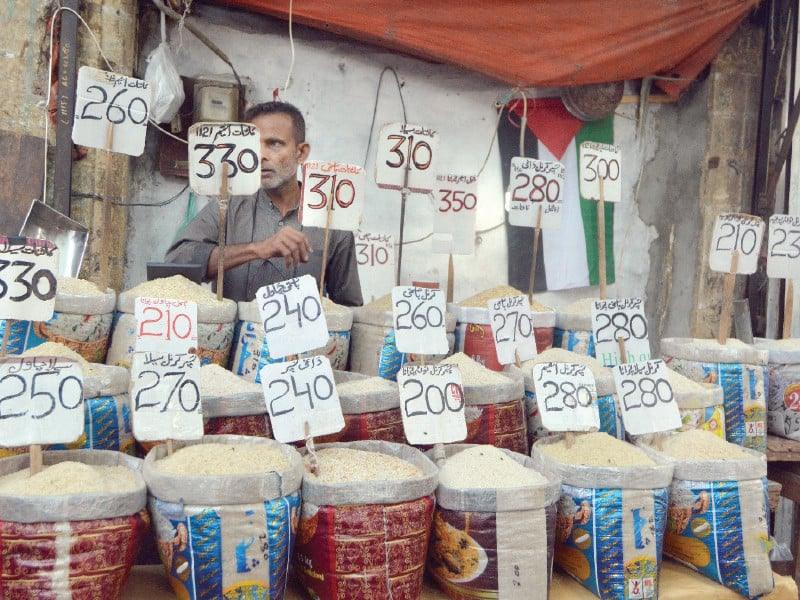KARACHI:
In the year 2024, there were constant fluctuations in the prices of essential foods throughout the country.
At the beginning of the year, people had to deal with record prices, especially for wheat flour. However, at the end of the year, flour prices fell substantially, which provided some relief. Apart from flour, prices of other kitchen items like dal mash, dal masoor, besan, sugar and rice also saw a gradual decline.
On the other hand, prices of moong dal, black gram, ghee and oil soared, adding financial pressure on households.
According to the Wholesale Grocery Association (WGA), in January 2024 the price of flour reached unprecedented levels: flour number 2.5 was sold at Rs 128 per kg; fine flour at Rs 142 per kg; and mill flour was priced at Rs 150 per kg. However, by December, these prices had fallen: the price of No. 2.5 flour fell from Rs 45 to Rs 83 per kg; fine flour between Rs 48 and Rs 94 per kg; and the price of mill flour decreased from Rs 45 to Rs 105 per kg.
Meanwhile, edible oil and ghee prices have soared during 2024, according to WGA president Rauf Ibrahim. The price of loose oil increased from Rs 114 to Rs 480 per liter, while branded oil increased from Rs 125 to Rs 550 per liter.
As far as pulses are concerned, price trends were mixed: dal puree price fell from Rs 70 to Rs 390 per kg; dal masoor saw a decline of Rs 50, settling at Rs 250 per kg; besan witnessed the steepest fall, from Rs 95 to Rs 240 per kg. On the contrary, prices of dal moong and dal chana skyrocketed with dal moong increasing from Rs 75 to Rs 380 per kg, while dal chana went up from Rs 85 to Rs 320 per kg.
Similarly, sugar and rice prices provided some relief to consumers in 2024. Sugar, which started the year at Rs 133 per kg, fell to Rs 127 per kg in December, while basmati rice prices stabilized at Rs 386 per kg, while reductions in basmati tota rice brought some relief to consumers in 2024. slight ease for households.
Despite the visible decline of some kitchen items, the overall rise in prices of other essential products showed the challenges people faced throughout the year.




